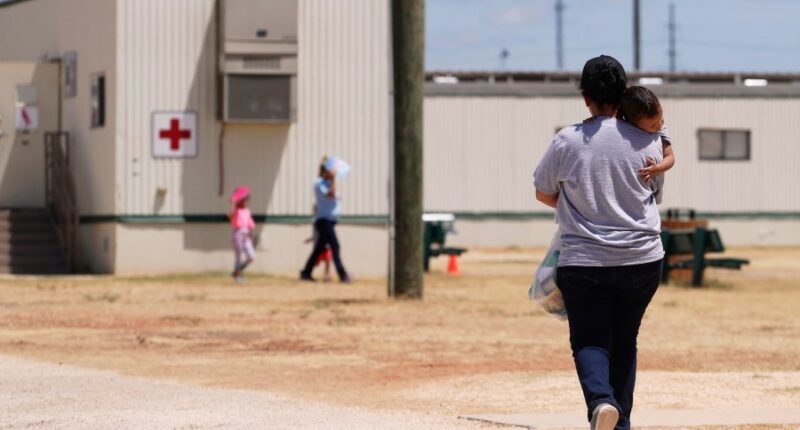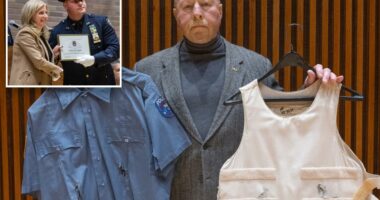Share this @internewscast.com

A federal judge is set to review a request from the Trump administration on Friday concerning a policy that’s been in place for nearly thirty years, which focuses on guaranteeing safe conditions for immigrant children in federal detention.
U.S. District Judge Dolly Gee in Los Angeles is expected to assess the possibility of terminating a policy that restricts the duration Customs and Border Protection can detain immigrant children, mandating they be held in conditions that are both safe and hygienic. This policy also allows for third-party inspections of CBP facilities housing immigrant children to ensure they meet compliance standards.
Child immigrant advocates are urging the judge to maintain these protections and oversight. They have presented firsthand reports from family detention centers where immigrants recount struggles over scarce resources, including adults competing with children for clean water, distressed toddlers, and instances of children with medical needs being overlooked.
The Trump administration, in its motion, claims substantial improvements have been made since the Flores agreement’s inception in 1997. They assert that the government now has established standards and policies for the care of immigrant children that align with both legislative requirements and the agreement’s guidelines.
“Conditions for immigrant children in the United States without parental accompaniment have significantly improved since this lawsuit first began four decades ago,” the government stated in its motion.
The agreement, which is named after a teenage plaintiff, sets the standards for the conditions under which all immigrant children in U.S. custody are to be held, whether they are traveling alone or with family. It also limits the detention period by CBP for child immigrants to 72 hours before they must be transferred to the care of the U.S. Department of Health and Human Services.
The Biden administration successfully pushed to partially end the agreement last year. Gee ruled that special court supervision may end when HHS takes custody, but she carved out exceptions for certain types of facilities for children with more acute needs.
Advocates for the children say the government is holding children beyond the time limits set out in the agreement. In March and April, CPB reported that it had 213 children in custody for more than 72 hours and that 14 children, including toddlers, were held for over 20 days in April. As part of their court filings, they included testimony from several families who were held in family detention centers in Texas.
If the judge terminates the settlement, the detention centers would be closed to third-party inspections.
The federal government is looking to expand its immigration detention space, including by building more centers like one in Florida dubbed “Alligator Alcatraz,” where a lawsuit alleges detainees’ constitutional rights are being violated.
















